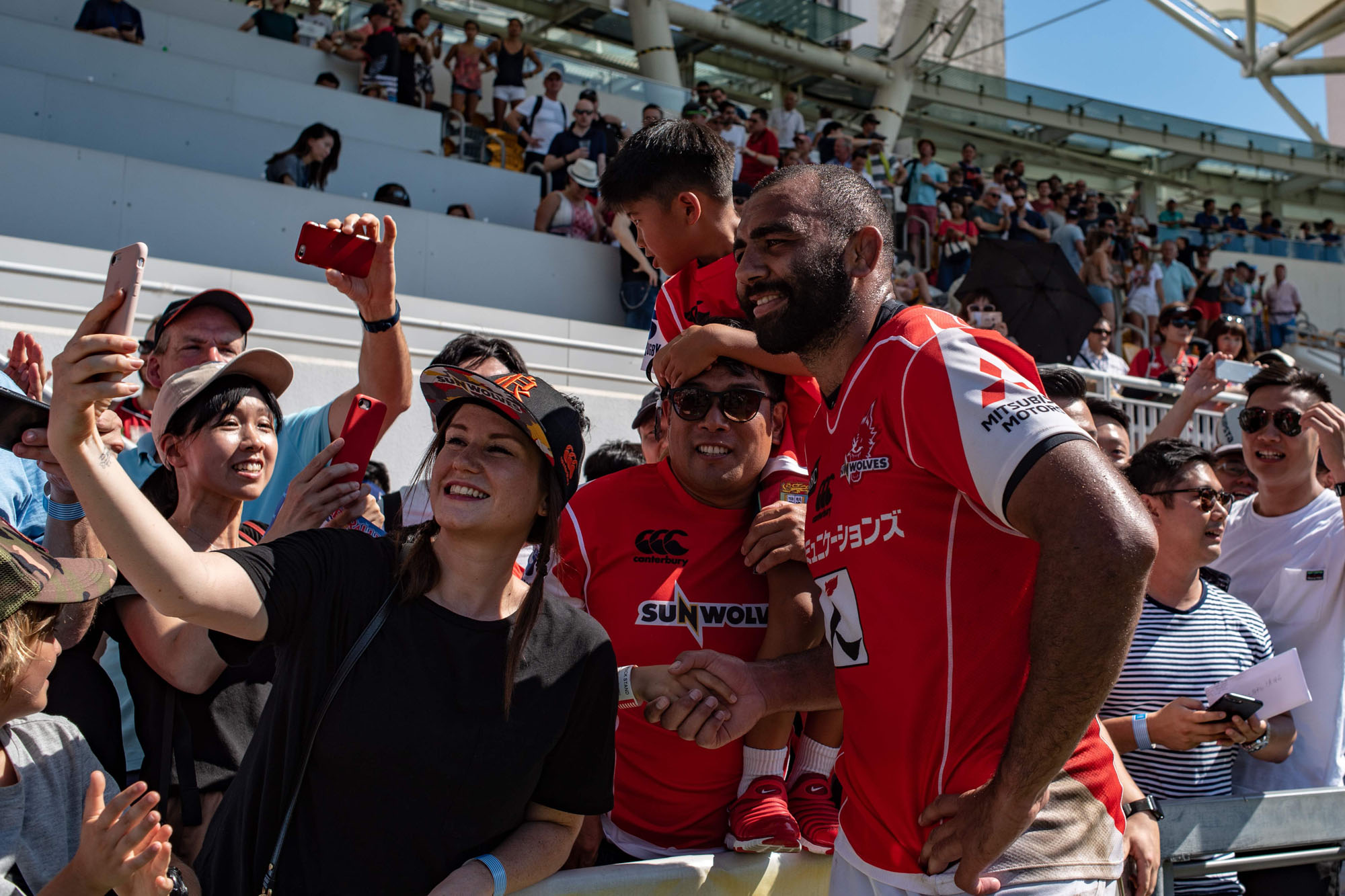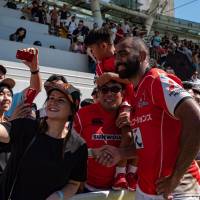The Sunwolves' win over the Stormers in Hong Kong last weekend was a big boost for rugby in Asia and justified the efforts of those who have pushed for a Super Rugby presence in the world's most populated continent.
Anyone who was at Mong Kok Stadium — along with the countless thousands around the world watching the game live on TV — will long remember the thrilling finish as the Sunwolves defied the conditions and the form book to win at the death, thanks to a drop goal by Hayden Parker off his less-favored foot.
"A little bit of exceptional brilliance," was Stormers coach Robbie Fleck's gracious description of Parker's heroics that came a week after the same player had led the Sunwolves to their first win of the season.
Jamie Joseph's men needed to show the big win over the Reds a week before was not simply a flash in the pan, and in the cauldron of Hong Kong, they did just that.
"It's fantastic isn't it. We've got people coming here, folks who perhaps never get to see a real high-quality game," Asia Rugby general manager Ross Mitchell said before the game.
The Sunwolves' original deal saw them hand over three home games a year to Singapore — in part to appease the South African teams, who objected to the hours they would have to spend on the plane to Japan.
But with the Sunwolves now in the Australian Conference, after Super Rugby was cut last year from 18 to 15 teams, and scheduling issues in Singapore, the Sunwolves will play just two "home" games away from Tokyo this season.
And the two stadiums — Singapore's National Stadium and Mong Kok — are like chalk and cheese.
The cavernous National Stadium in Singapore may have a roof and air conditioning but it is hardly the ideal place to host a sport that struggles to grab the attention of Singaporeans at large.
Mong Kok Stadium, by comparison, was just right, though the lack of shade in two of the stands was one reason given for the game failing to sell out at a ground that has a capacity of 6,769, as the temperatures reached 33 C and the humidity 85 percent.
"The rugby season is also over and the kids are all playing other sports," one local coach told me. "So that and the heat, which had been predicted, meant they were either busy swimming, for example, or they stayed indoors."
Those who did turn up, however, ensured Hong Kong's reputation as a city that loves to party while it watches rugby remained intact.
"I think we saw a little bit of what the Hong Kong Sevens are about and the crowd was just amazing," said Sunwolves captain Willie Britz. "It was a great atmosphere, very lively, extremely hot."
Mitchell is hopeful the experience can be repeated — not just in Hong Kong but in other cities.
"It's the first time Hong Kong has hosted Super Rugby so we'll see how it goes," he said. "I can't speak on behalf of Hong Kong Rugby Football Union, but in Asia we just love to see it. We've got Singapore, now it's in Hong Kong and if we can get it into another city, it's got to be great for the game."
Super Rugby's present broadcast deal runs out in 2020, and there is talk the tournament could change greatly in terms of its format and the makeup of the teams.
There are rumors the South African teams may opt to play in Europe, while the Sunwolves will be in direct competition with the Top League in 2020, as a result of the delayed start to the domestic season here following the 2019 Rugby World Cup.
Asia is therefore looking at other options with Hong Kong and an as-yet-unnamed Japanese team set to play in Andrew Forrest's new World Series Rugby, and some big investment possibly heading China's way.
"I think we'll have to cut our cloth to suit, we don't want to run before we can walk," Mitchell said when asked if other Asian sides may join the competition.
"Once we have the (World Series Rugby) stuff set up, the Indo-China stuff set up, we'll see how it goes there, but let's make sure we go for quality rather than quantity."
Mitchell also said "Asia Rugby would very much support" any attempt to have South Korea and Hong Kong play in Japan's Top League "because it helps those two unions build and helps their high performance."
However, sources within the HKRFU said that was unlikely given the unwillingness of the Japan Rugby Football Union to act as a beneficial big brother.
"We've had some lean times, no doubt. But really we're headed in the right direction," Joseph said Saturday of his Sunwolves team.
If people can get what was on offer in Mong Kok on and off the field on a regular basis, then rugby in Asia will also be heading in the right direction.


















With your current subscription plan you can comment on stories. However, before writing your first comment, please create a display name in the Profile section of your subscriber account page.